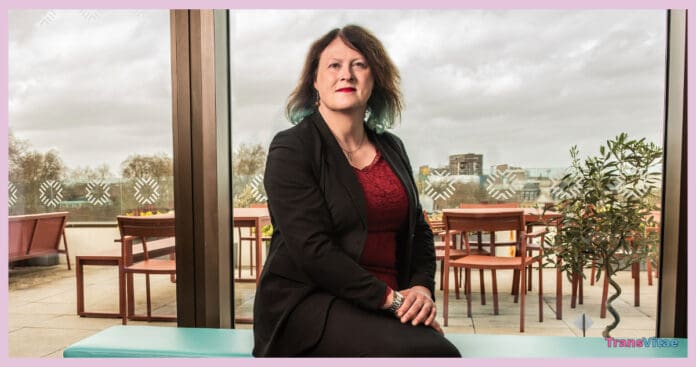In a significant and disheartening development, Britain’s first transgender judge, Victoria McCloud, has announced her resignation from the High Court. The decision comes amid a growing wave of hostility and discrimination against transgender individuals, even within the LGBTQIA+ community. McCloud, who transitioned in the 1990s, cited an increasingly hostile work environment and fears of politicizing the judiciary as her reasons for stepping down.
In an interview with Financial News, McCloud revealed that the workplace has become more hostile to trans people, warning employers to take stronger action against prejudice. She expressed her dismay at conspiracy theories held by some in the LGBTQIA+ community, stating, “Even some apparently sensible people in the LGBTQIA+ community hold to the conspiracy theory that trans people secretly want to convert gay and lesbian people to straight or to mutilate children, with no basis.”
A Journey Marked by Resilience
Victoria McCloud’s journey is one of remarkable resilience. Transitioning in the 1990s, a time when societal acceptance was scarce and legal protections for transgender individuals were virtually non-existent, she managed to carve out a successful career in law. She was appointed as the youngest ever King’s Bench Master of the High Court in 2010, a position that underscored her legal prowess and dedication.
Despite the initial acceptance and support from colleagues, clients, and judges, McCloud’s professional environment has deteriorated over the years. She noted that professionals used to be more “tolerant and kind” towards trans people than they are today. “Sadly, today the UK is far less accepting and there are even qualified lawyers who are unaccepting of trans people and deliberately insulting, so I doubt I would have coped as well if I came out now,” she remarked.
Increasing Hostility and Misogyny
McCloud’s resignation letter highlighted the toxic environment she faced. She described it as “open season” on her and other transgender individuals, exacerbated by the rise of gender-critical campaigners who argue that biological sex cannot be changed. “I am now political every time I choose where to pee,” she said, encapsulating the daily struggles and politicization of her existence.
The senior civil judge also stressed the importance of employer intervention in combating workplace discrimination. “The main thing all firms can do is to prevent the rudeness and intimidation that some people – pretending that it is a necessary part of some belief system or other – dish out in the workplace. Employers are perfectly entitled to expect employees to respect social norms such as politeness, which includes the social convention we apply generally to respect how people wish to be addressed.”
A Legal Landscape in Flux
McCloud’s resignation comes at a time of intense scrutiny and debate over transgender rights in the UK. The Cass Review in April raised concerns about the treatment of transgender minors, advising against hastily administering hormone treatments. Additionally, Prime Minister Rishi Sunak announced plans to rewrite equality laws to define sex as “biological sex,” sparking further controversy and fear among transgender individuals.
McCloud’s own experiences reflect the precarious position of transgender professionals in today’s legal landscape. Despite being a University of Oxford graduate and living as a woman outside of work before coming out professionally, she faced significant challenges. She recalled writing letters to colleagues explaining her personal and medical journey, receiving overwhelming support but also encountering resistance from some coworkers.
A Call for Empathy and Action
The resignation of such a prominent figure as Victoria McCloud underscores the urgent need for empathy and action to protect transgender individuals. Her advice to LGBT professionals fearing to come out at work is poignant: “Try to ascertain carefully the lie of the land so that you don’t make the mistake of relying on an ‘LGB without the T’ activist who you thought might be an ally. They are few and far between, but be aware.”
Her departure has sparked a broader conversation about the treatment of transgender individuals in the workplace and in society at large. McCloud’s advocacy extends beyond her personal experiences, as she has been actively involved in historic abuse cases and other significant legal matters. Her contributions to the legal field are numerous, yet the increasing hostility she faced led her to conclude that it was no longer possible to serve as a transgender judge in a dignified manner.
As McCloud transitions to a new phase in her career, now an associate tenant at Gatehouse Chambers, her reflections on the past and hopes for the future remain vital. She expressed optimism for younger generations, despite acknowledging the “very difficult and dangerous period” they face. “There is hope for young trans people,” she said, “but they will have to tolerate a very, very difficult and dangerous period.”
Her involvement in the landmark court case with For Women Scotland highlights her ongoing commitment to transgender rights and the legal recognition of transgender individuals. If the activist group succeeds in redefining “woman” to refer solely to biological sex at birth, it would effectively reverse the Gender Recognition Certificate process for thousands of trans people, a move McCloud describes as the “ultimate personal violation.”
Victoria McCloud’s resignation is a stark reminder of the challenges that transgender individuals face in modern Britain. Her story is one of resilience, achievement, and the harsh realities of discrimination. As society continues to grapple with issues of gender identity and equality, McCloud’s experiences and insights serve as a powerful call to action for greater empathy, understanding, and protection for transgender individuals.
In her own words, “We’ve taken a few steps backwards recently, but there is always hope for a better future. It’s up to all of us to ensure that transgender individuals can live their best lives without impinging on the rights of others.”


